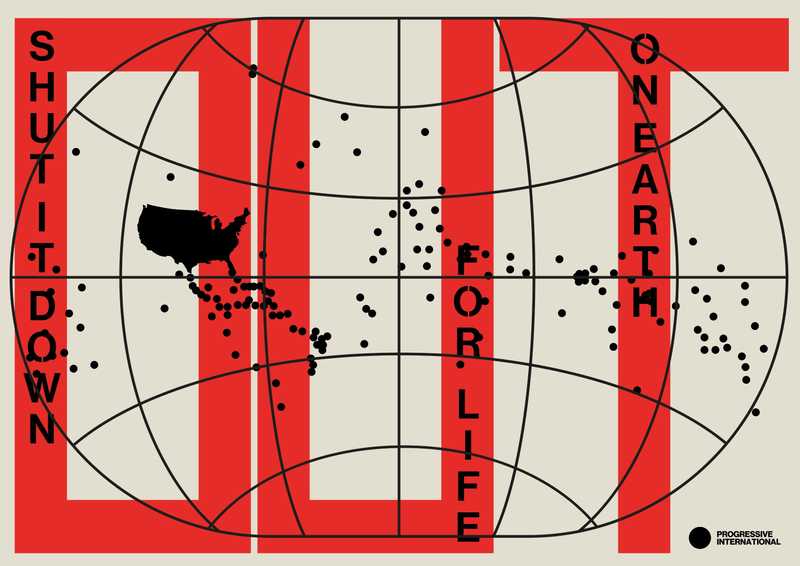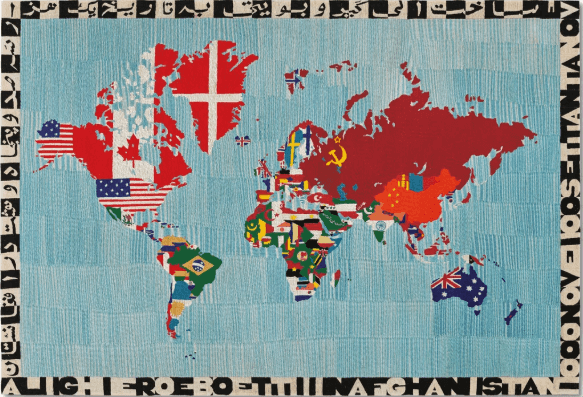
The contradictions are sharpening.
As Israel’s campaign of total destruction of Gaza escalates, millions have come to see the ways in which structures of oppression intersect across borders, struggles, and histories.
Western governments that have long chastised others over their human rights records now cheerlead one of the gravest crimes of our century — producing a profound crisis of ideological legitimacy.
The police batons that — from Berlin to Atlanta — crack down on peaceful protests in the imperialist heartlands reveal that liberal democracy can be discarded as readily as it can be weaponized.
And the propagandistic slogans coming from the Israeli state and echoed by Western officials and the media — “inhuman animals”, “human shields”, “total annihilation”, and so on — recall the language of every colonizer, everywhere, at all points in their sordid history.
The Western ruling classes are unmasked. In their eager support for the massacre of the Palestinian people, figures like Ursula von der Leyen — herself the descendant of "not only some of Germany’s most significant Nazis but also some of Britain’s largest slave traders and, through marriage, some of the United States’ largest slave owners” — reveal a chilling continuity in the colonial project. It is a project that is inseparable from the rise of capitalism and the great inequalities of wealth and power that persist around the world.
Since 1960, the old colonial powers of the Global North, led by the US, have drained $152 trillion from the Global South through structures of unequal exchange. When these parasitic relations are threatened, imperialism responds with psychotic, unconstrained violence: the kind that exterminates a quarter of the Korean population, or over a million Indonesians, or one and a half million Algerians, or two hundred thousand Guatemalans, or half a million Iraqi children, or a Gazan child every ten minutes.
The sadism and disproportionality are necessary because of imperialism’s central weakness: its inability to rule by consent. Leaps towards liberation are always met with devastating force, which helps explain why many nations that withstood such violence decide to build up armies and arsenals for self-defense.
Today, the US is the lynchpin of that imperial violence — a position it has carefully built over two centuries. We can trace one root of that project back to 2 December 1823, when US President James Monroe set out a policy of US domination over the Western Hemisphere — proclaiming the so-called ‘Monroe Doctrine’. In the two centuries since, the dimensions of US domination have only grown, achieving “a pre-eminence not enjoyed by even the greatest empires of the past,” according to former US Secretary of State Henry Kissinger.
That pre-eminence is beginning to wither away. The violence unleashed against the Palestinian people, then, will not be the last convulsion of the fading unipolar era. Until the military machine is dismantled everywhere, no violence will be deemed too great to preserve the imperial order. That is why we must prepare today: sharpening our analytical tools and strategies in preparation for the revolutionary situation that is swelling all around us.
On the 200th anniversary of the Monroe Doctrine, we are launching a global campaign against US militarism with a Global Day of Anti-Imperialist Action — inviting activists and organizations around the globe to organize actions, teach-ins, readings, or protests, and helping to advance an understanding of imperialism’s nefarious role among the masses of the world’s people.*
As the Polish communist Karl Radek said at the 1922 Hague Peace Conference: “[If] the working class does not rise before the cannon are mounted, it is much less likely to rise after martial law has been proclaimed, after all the demons of nationalism have been let loose, and the workers bound hand and foot.”
They built the war machine. Together, we will shut it down — from all rivers to all seas.
*If your organization might like to engage with this campaign, please reach out to us to open a discussion. In the coming days and weeks, we will send further information about the campaign and what everyone can do to take part.
Latest from the Movement
One week away from biggest Make Amazon Pay Day yet
On Black Friday, 24 November, all around the world workers and their unions, activists and citizens will come together to Make Amazon Pay. We hope to make it the biggest day of action yet. Black Friday is Amazon’s busiest shopping day of the year, which is why workers are coordinating strike action and protests across borders on the same day. Join an action near you.
Honduras Resiste
Last week, an international delegation of diplomats, parliamentarians, analysts, and experts traveled to Tegucigalpa. Following three days of dialogue with citizens, communities, Members of Congress and representatives from across the Government of Honduras on the permanent resistance against the Zones of Employment and Economic Development (ZEDEs) that attempt to privatise national sovereignty — have constituted the International Movement for Honduras in Resistance. Read more about the PI delegation to Honduras and its extensive outcomes here.
Democracy in Argentina in under assault
Over 100 parties, unions, and movements issue an urgent call to all democratic forces in the face of Javier Milei's existential threat to Argentine democracy and the rights that its citizens have won since they defeated the military dictatorship 40 years ago. You can add read the full statement and add your name here.
Peace and Justice Project International Conference
PI Member the Peace and Justice Project is holding an international conference in London on Saturday. The International Conference will focus on dialogue and actions, to bring about solidarity and hope for a world of peace and justice.
Join Jeremy Corbyn MP, Tori Tsui, Ken Loach, Sevim Dağdelen MdB, Yanis Varousfakis, Chris Smalls and many more by registering to watch online here.
First Nations rise for Palestine
The Israeli bombardment of Gaza continues to kill a child every ten minutes; the global movement for Palestinian national liberation grows around the world. The past week saw some of the largest mobilisations yet, with millions marching, children walking out of lessons, weapons companies targeted and Israeli ambassadors expelled from a handful of Southern states.
Now a new initiative brings the moral weight of First Nations in solidarity with the people of Palestine. Save Our Sacred Lands, who are part of the Make Amazon Pay coalition, has launched First Nations of the World in Solidarity with Palestine and is looking for fellow indigenous groups to “stand in unwavering solidarity with the people of Gaza” and call for an immediate ceasefire and an end to the occupation. Groups can read more and join their call here.
Art: In his latest campaign poster, PI Creative Director Gabriel Silveira explores the sprawling network of US military bases. These posters, and many more, will be available for download soon.



